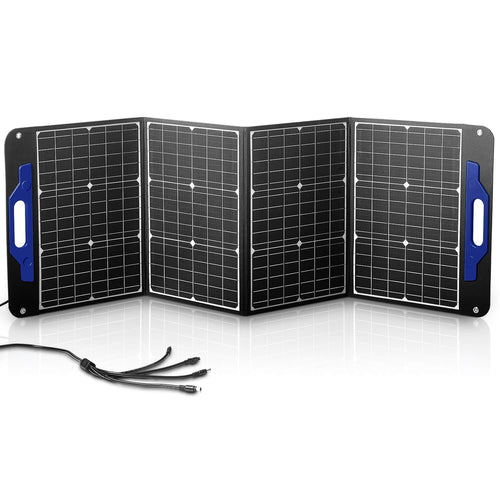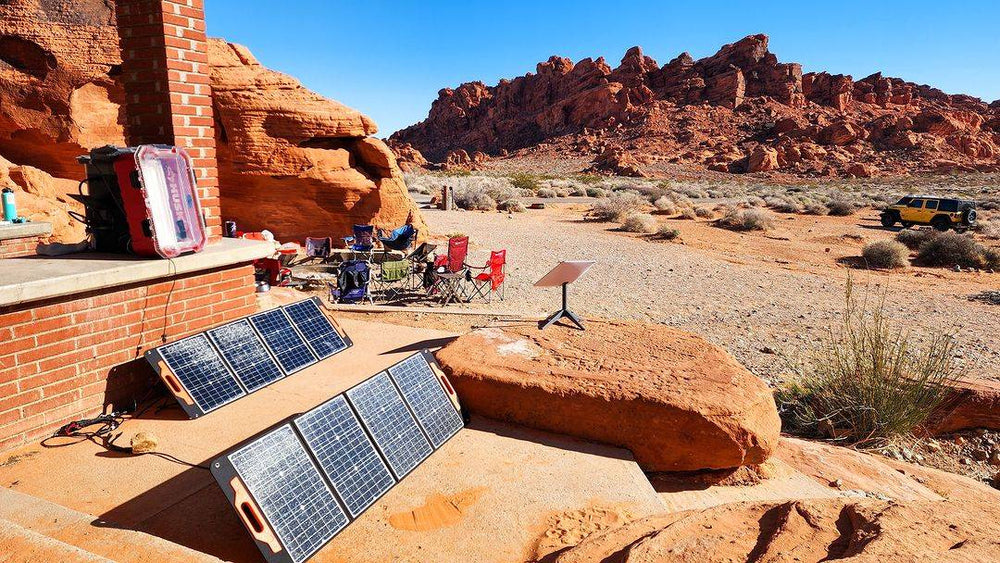Introduction
Setting up a solar panel system to charge a 12V fridge can be a sustainable and eco-friendly solution, especially for outdoor enthusiasts and off-grid living. Solar power offers a reliable source of energy to keep your fridge running efficiently without relying on traditional electricity sources. In this comprehensive guide, we will walk you through the step-by-step process of setting up solar panels to charge a 12V fridge, ensuring that your fridge stays cool wherever you go.
Understanding Solar Panels for Charging
How Solar Panels Work
Solar panels, also known as photovoltaic panels, convert sunlight into electricity through the photovoltaic effect. When sunlight hits the solar cells in the panel, it excites electrons, generating an electric current. This electrical energy can then be stored in a battery or used directly to power devices like a 12V fridge.
Types of Solar Panels
There are three main types of solar panels:
- 1. Monocrystalline Solar Panels: These panels are made from a single crystal structure and are known for their high efficiency and space-saving design.
-
 2. Polycrystalline Solar Panels: These panels are made from multiple crystal structures and are more affordable than monocrystalline panels, but slightly less efficient.
2. Polycrystalline Solar Panels: These panels are made from multiple crystal structures and are more affordable than monocrystalline panels, but slightly less efficient. - 3. Thin-Film Solar Panels: These panels are flexible and lightweight, making them ideal for portable setups, but they generally have lower efficiency compared to crystalline panels.
Advantages of Using Solar Panels
Using solar panels to charge your 12V fridge offers several advantages, including:
-
Renewable Energy Source: Solar energy is renewable and abundant, making it an eco-friendly choice for powering your appliances.
-
Cost Savings: Once installed, solar panels provide free electricity, reducing your dependence on traditional power sources and saving on utility bills.
-
Portability: Many solar panels are designed to be lightweight and portable, allowing you to set up your power source wherever you go.
Choosing the Right Solar Panel for Your 12V Fridge
When selecting a solar panel, consider factors such as wattage, size, and efficiency. Determine the power consumption of your fridge to ensure the solar panel's wattage is sufficient to meet its energy needs.
See also: How to Choose Solar Panel?
Essential Components for Solar Panel Setup
To set up a solar panel system for your 12V fridge, you will need the following components:

Solar Panels
Choose high-quality solar panels with the right wattage and size for your setup. Consider the available space for installation and the panel's compatibility with your charge controller.
Charge Controller
A charge controller regulates the energy flow from the solar panels to the battery, preventing overcharging and ensuring the battery's longevity.
Deep Cycle Battery
Select a deep cycle battery designed for solar applications. These batteries can withstand frequent charging and discharging cycles, making them ideal for solar setups.
Inverter
The inverter converts the DC power from the battery into AC power, which your 12V fridge uses. Choose an inverter that can handle the fridge's power requirements.
Wiring and Connectors
Use appropriate wiring and connectors to connect the solar panels, charge controller, battery, and inverter. High-quality wiring ensures optimal energy transfer and minimizes power losses.
Designing Your Solar Setup
Calculating Daily Power Consumption
To determine the number of solar panels and the battery capacity required, calculate your 12V fridge's daily power consumption. Consider factors like compressor cycles, temperature settings, and the fridge's usage pattern.
Determining the Number of Solar Panels Needed
Based on your daily power consumption calculation and the solar panel's efficiency, determine the number of solar panels needed to charge your 12V fridge effectively.
Positioning the Solar Panels
Place the solar panels in a location that receives maximum sunlight exposure throughout the day. Angle the panels to face the sun for optimal energy capture.

Installing Your Solar Panels
Mounting Solar Panels on the Roof
If you are using solar panels for an RV or a camper, install them on the roof following the manufacturer's instructions. Ensure the panels are securely mounted and won't be affected by wind resistance during travel.
Connecting Solar Panels to the Charge Controller
Connect the solar panels to the charge controller using appropriate cables and connectors. Follow the polarity markings to avoid damage.
Wiring the Charge Controller to the Battery
Connect the charge controller to the deep cycle battery, ensuring the correct wiring connections.
Monitoring and Maintaining Your Solar Setup
Checking the Solar Panel Performance
Regularly monitor your solar panel system's performance to ensure it's generating the expected amount of electricity. Clean the panels if they accumulate dust or dirt to maximize their efficiency.
Battery Maintenance
Check the deep cycle battery's charge level regularly and avoid complete discharges, as they can shorten the battery's lifespan.
Troubleshooting Common Issues
Familiarize yourself with common issues that may arise with solar panel setups and learn how to troubleshoot them to ensure uninterrupted power supply.
Solar Energy Tips for Efficient Charging
Minimize Energy Consumption
Use energy-efficient appliances and minimize the time your 12V fridge stays open to reduce overall power consumption.
Optimizing Solar Panel Placement
Regularly assess the positioning of your solar panels to maximize their exposure to sunlight. Adjust their angle and direction as needed.
Conclusion
Setting up solar panels to charge a 12V fridge can significantly enhance your outdoor adventures and off-grid experiences. By understanding the basics of solar panels, choosing the right components, and designing an efficient setup, you can enjoy a continuous and eco-friendly power source for your 12V fridge.
FAQs
Can I charge my 12V fridge directly from solar panels without a battery?
- While it is technically possible, it's not recommended, as the power supply may become inconsistent, affecting your fridge's performance.
How long will it take to charge my 12V fridge with solar panels?
- The charging time depends on the solar panel's efficiency, the battery capacity, and the fridge's power consumption. It's best to consult the manufacturer's specifications for an estimate.
Can I expand my solar panel setup in the future?
- Yes, many solar setups are expandable. You can add more panels or batteries as needed to meet your power requirements.
Should I use a monocrystalline or polycrystalline solar panel for my setup?
- Both types of panels can work well for charging a 12V fridge. Monocrystalline panels are slightly more efficient.
Is it necessary to hire a professional to install my solar panel system?
- While some people prefer professional installation for complex setups, many solar panel kits are designed for DIY installation, making it accessible to most users. However, if you're unsure, seeking professional assistance is always a good idea.








1 comment
Rob Oakes
Can I have a trickle charger connected to battery when fridge is running ( 240 voltage, powered
Keeping 12 voltage battery charged